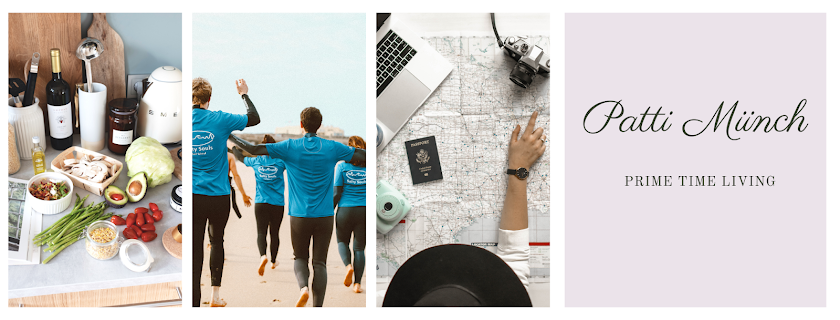We do it 35,000 times a day. 2,000 times every hour. Once every 2 seconds.
We make a decision.
Some we make with little thought, and rightfully so. We see a stop sign, and we slow down and then stop before entering the intersection.
The problem is that we make far too many decisions with little or no thought at all.
We are such creatures of habit that even when we have options, we often select the same one over and over, even if the consequences are less than ideal. For example, for many years I didn’t eat breakfast. I knew that starting the day with something healthy with protein was what I should do, and even though every once in awhile I promised myself I’d eat whatever healthy breakfast food I put before my children in the morning, my “breakfast” of choice was usually a soft drink consumed while driving to work. When it wasn’t a soft drink, it was a Snickers bar!
If we aren’t acting out of habit, we often make choices on the spur of the moment. We don’t take the time to consider the options available to us, and their ramifications, until it’s too late and the damage of our collective poor — or just not-best — choices catch up with us.
No matter why or when or in what situation our choices are made, they add up. As Jean-Paul Sartre said, “We are our choices.”
It’s important, then, that as we make decisions, we make not just good ones, but the very best ones.
But how do you do that?
It’s really not difficult; in fact, making the best possible decisions involves only 4 steps.
First, it’s imperative that you know your beliefs and values. You may be tempted to quickly skip this step because you’re confident that you know what you believe and what your value system is. Do you?
Let’s take a quick test. Grab a piece of paper and jot down your top 2 values, or priorities. If you’re like most Americans, you’ll list God (or faith), followed by family. But write whatever 2 things you value above all else. Now, look at your planner/calendar and your checkbook. Does the use of your discretionary time (the time left over after your job, necessary chores around the house, and sleep) and your money (after true necessities) indicate that you truly value what you wrote down? If they do, good for you!!
When I was challenged a few years ago by something I read to give myself that quick test, I could no longer ignore the fact that I was not making choices that were aligned with what I claimed to value. I wasn’t alone. Several studies indicate that over 90% of Americans use their discretionary time and/or income for something other than what they say they value or, at least, not in proportion to their values.
Second, you must have a clear picture of the life you want to live. If you don’t, work through the Life Redesign Blueprint I wrote about a few weeks ago or read any number of books on life redesign available at your local library, local bookstore, or online bookstore. Whatever route you take, make sure that when you finish, you know what you want and don’t want in your life from this point forward.
Third, be more aware of the opportunities you have to make a decision; in other words, be more intentional in noticing when you have options. Of course, not all decisions required that you go on to step 4. Wear brown socks or black? That one doesn’t require you consider much more than what color pants and shoes you’ll be wearing. 🙂 But if you recognize that your decision has some true consequence, move on to step 4.
Four, pause and consider every option available to you. Weigh each one first against your own belief system. If more than one option remains, ask yourself which one is the one most likely to take you to the life you want to live. I realize that someone may be pressuring you to make a decision; their may be a deadline involved. Tell the person you need time and, even if you must work through step 4 quickly, that’s an improvement over not evaluating the options at all.
Simple, yes. Easy, no.
It’s going to require a change in your habits. It’s going to require that you stop acting out of habit and reacting mindlessly.
It’s going to require intentionality.
It’s time for you to join in the discussion. What decisions do you tend to make without pausing to consider the consequences? Do you have any suggestions or tips to share with others that struggle with this? Any examples of how this has worked out in your life? Please share your questions and/or thoughts via a comment.


